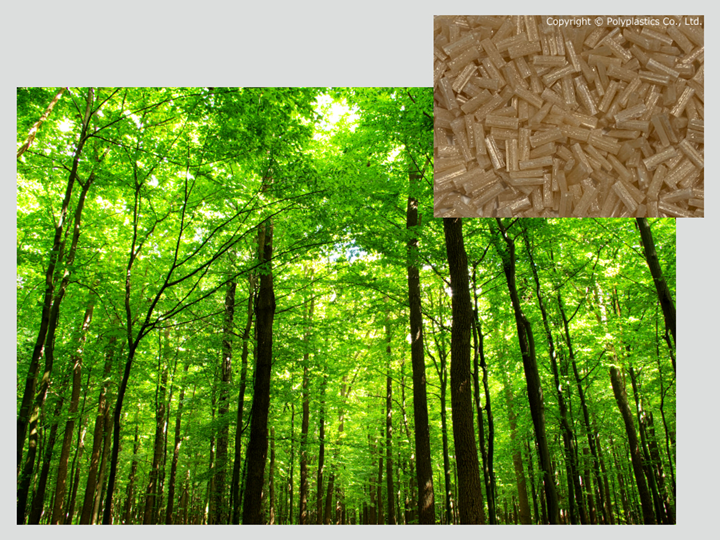LFT-PP Made of Regenerated Cellulose
Polyplastics’ new eco-friendly Plastron LFT boasts weight reduction and mechanical strength.
A long-fiber-reinforced-thermoplastic (LFT) made with specially formulated regenerated cellulose fibers is newly available from . Eco-friendly Plastron LFT-PP reportedly provides weight reduction plus mechanical strength, enabling manufacturers to reduce their carbon footprint and meet today’s sustainability demands.

Cellulose is a promising material to help reduce CO2 emissions but its insufficient strength is a limiting factor. Regenerated cellulose is natural cellulose spun into continuous fibers through wet spinning. Since cellulose is highly insoluble in solvents, a large portion of regenerated cellulose fibers are manufactured through long and cumbersome processes. Polyplastics tackled this challenge by developing regenerated long-fiber cellulose materials via a solvent method--a simple manufacturing process that emits very little CO2. Since this method involves a closed process that recovers virtually 100% of the solvent, it generates hardly any waste and produces materials that are even more eco-friendly. The company has earned multiple patents for this technology in Japan and internationally.
A comparison of long-fiber cellulose-reinforced PP resin versus long-fiber glass-reinforced PP resin at the same flexural modulus shows that cellulose-reinforced resin has lower density than glass-filled resin. While long-fiber cellulose-reinforced PP resin has a flexural modulus roughly 3% higher than that of 30% long-glass reinforced PP resin, it exhibits higher values for Charpy impact strength, tensile strength, and flexural strength, thus indicating potential for upgraded strength.
Related Content
-
NPE2024 Materials: Spotlight on Sustainability with Performance
Across the show, sustainability ruled in new materials technology, from polyolefins and engineering resins to biobased materials.
-
BASF Highlighting How They 'Make, Use and Recycle Future Solutions'
NPE2024: BASF is using its proprietary computer-aided engineering tool Ultrasim when designing for sustainability in a broad range of industries.
-
How to Optimize Color Evaluation of Recycled Plastics
The right color measurement instrument and good working methods will minimize variability in color evaluation of PCR.




